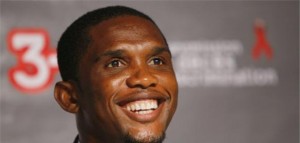Jeune Afrique’s investigation raises important questions about the evolution of African football and the impact of international standards on the style and creativity of African players. The report suggests that adherence to European training standards may limit the natural flair and improvisation that African players traditionally brought to the game.
The prominence of South American players in the recent transfer window, as highlighted by Lionel Messi, Neymar, and Radamel Falcao, suggests a shift in the football landscape. However, the report acknowledges that Africa still produces great players, citing examples like Gervinho and Pierre-Emerick Aubameyang, as well as established stars like Samuel Eto’o, Didier Drogba, and Yaya Touré.
The perspective of former players like Patrick Mboma adds depth to the discussion, emphasizing the pressure on young African talents to conform to European standards early in their careers. The need for players to adapt their game to fit certain criteria, such as athleticism and endurance, is seen as a potential hindrance to the natural creativity and freedom of expression that characterizes African football.
Coaches like Claude Le Roy advocate for allowing creative players the freedom to improvise and express themselves on the field. The report suggests that the management of African players should be more individualized, recognizing the diverse personalities and playing styles within a team.
The call for Africans to take charge of their training and for clubs to offer better financial incentives to retain talent locally is an interesting proposition. This could potentially lead to a resurgence of players who embrace their natural flair and resist conforming to standardized expectations.
The question of whether Africa can create a surprise in the upcoming 2014 Football World Cup in Brazil remains open. It depends on various factors, including how well African teams adapt to evolving game developments and whether they can harness the unique talents of their players.
In summary, the investigation prompts reflection on the changing dynamics in African football, the impact of international standards, and the potential for a resurgence of creativity if players are given more freedom and financial incentives to stay within their home leagues.







